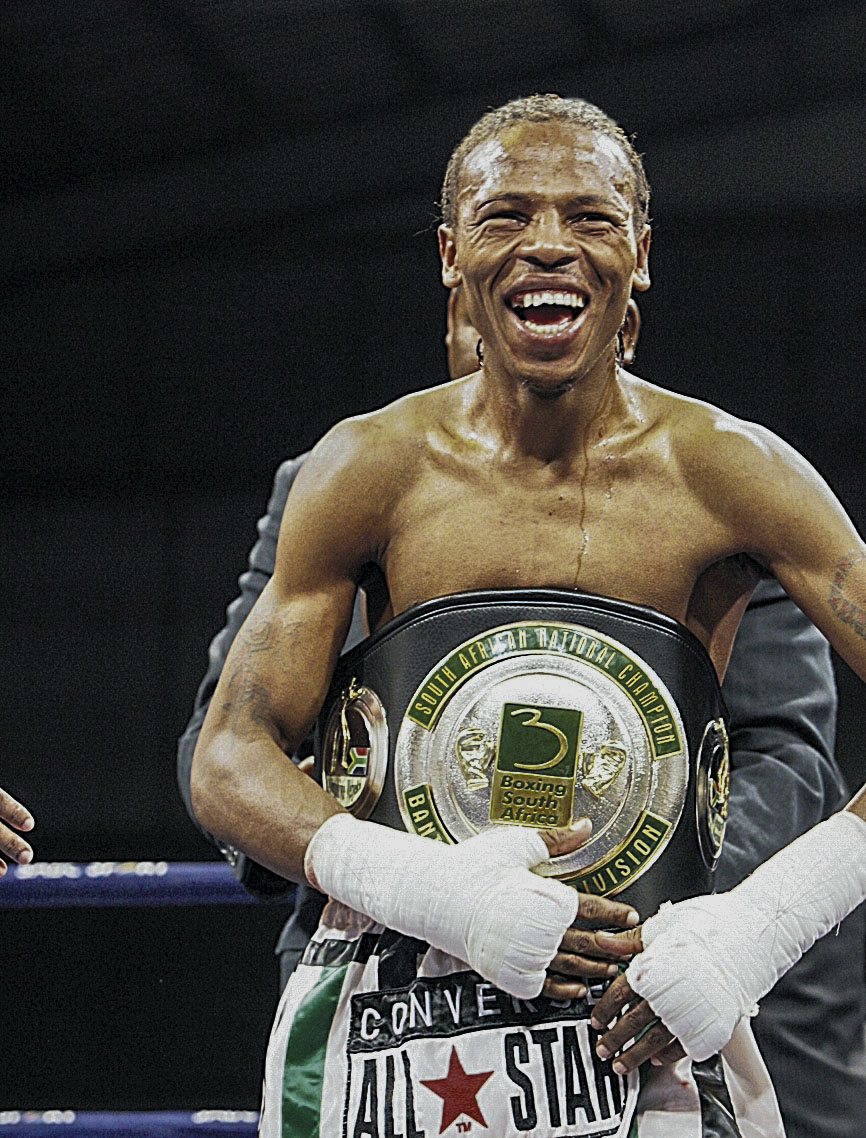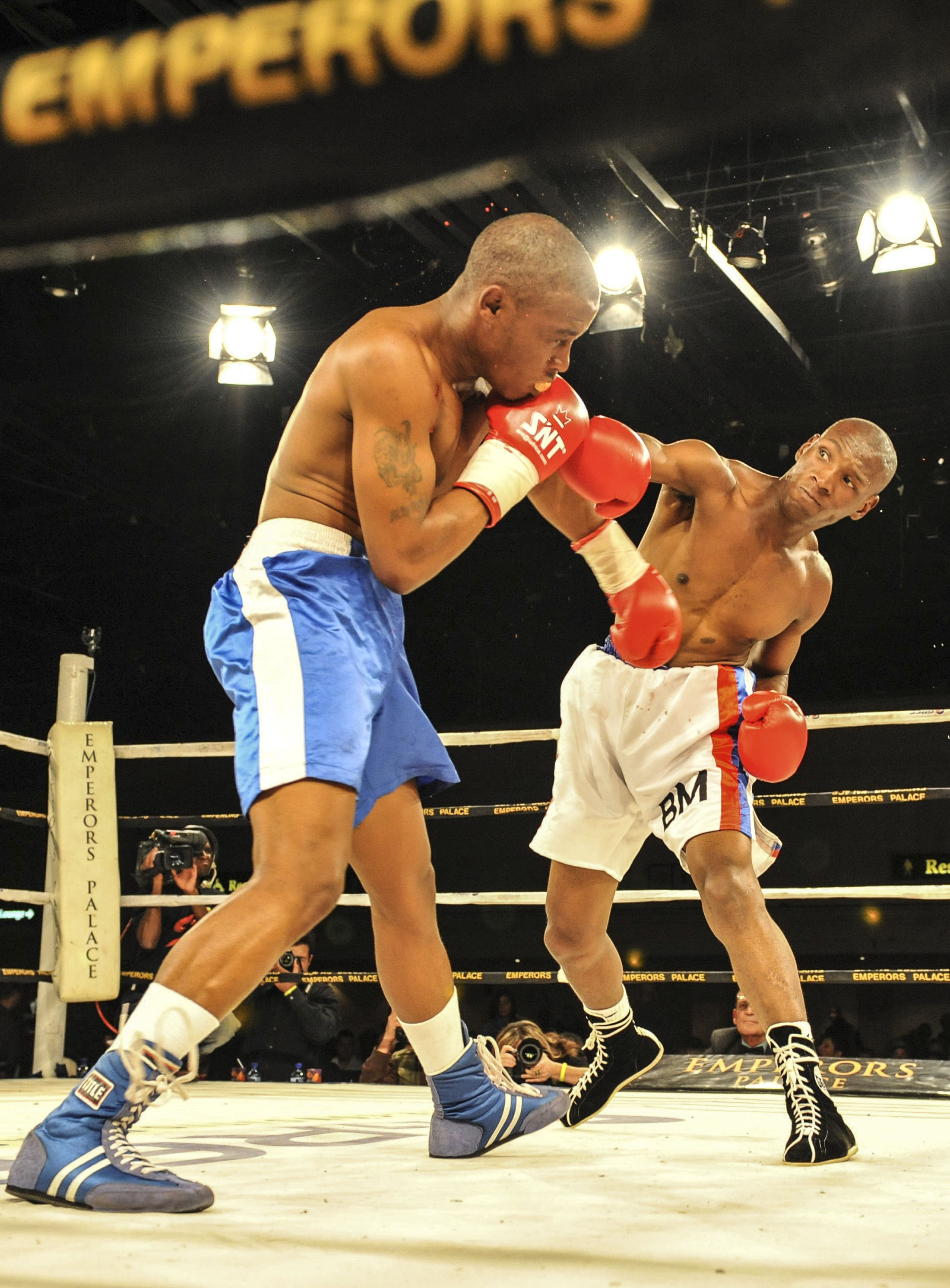Troubles: Tommy Tommy Gun Oosthuizen (left) did time in jail for being bust with drugs. Photos: Gallo Images
Boxing is a blood-heavy sport, but lately there have been more boxers bleeding to death outside the ring than drawing blood in it.
Most of these deaths come in violent forms such as stabbings, shooting or assaults. They have put a spotlight on various factors such as the environment these athletes inhabit and whether the fighters have been adequately equipped with the wisdom to choose their hangouts.
The recent death of popular boxer Manelisi “Leli” Mbilase sent shock waves through the country’s sporting circles, with more focus cast on the manner and the reason for his death, rather than his actual passing.
Mbilase was stoned to death by residents in Mdantsane, East London, after he was allegedly caught robbing two women of their belongings.

Manelisi ‘Leli’ Mbilase was stoned to death, allegedly for robbery (Photo: Gallo Images)
Family members confirmed that the former South African featherweight champion was addicted to drugs and would “do anything for a fix”.
Drugs are no stranger to boxing. Most recently, newly crowned African Boxing Union cruiser weight champion Tommy “Tommy Gun” Oosthuizen poured his heart out about his life of substance and alcohol abuse, which landed him in jail.
Oosthuizen, who Gauteng police say was drunk at the time of his arrest on February 6, was caught in possession of drugs.
But it has been the violent deaths of boxers that have set tongues wagging.
Three years ago, promising featherweight boxer Lundi Madondile was stabbed to death when someone known to him entered his home in Scenery Park, East London, while he was sleeping. Residents claimed that the teenager killed Madondile to “settle a score to an old beef”.
Ranked sixth by Boxing South Africa (BSA), Madondile died barely a week after his sensational second-round knockout of Durban legend Jerome Cebekhulu.
He had already been approved to challenge Mdantsane star Macbute Sinyabi.
He was part of the internationally famed Eyethu Boxing Club, which produced 1990s world champions such as Welcome Ncita, Vuyani Bungu, Mbulelo Botile and Hawk Makepula.
Bungu, renowned for his dedication and discipline, who defended his International Boxing Federation junior featherweight world title a record 13 times, said today’s fighters lack respect for the game.
“And they clearly also don’t respect themselves. Once they see themselves in the news, they forget what took them there in the first place. In our days, people would be shocked just by seeing you walking the streets because most of the time we kept to ourselves,” said “The Beast”.
In September last year, Sinethemba Magibisela was stabbed to death in Ilitha, near King William’s Town, as he walked home from a get-together with friends, just a day after a points win over Mbulelo Nxazonke.
BSA chairman Ntambi Ravele warned boxers to “choose carefully” the places they visit.
Exactly two years before Magibisela’s death, Gauteng boxing hope Boitshepo “Gangster” Mandawe was stabbed to death at a hangout spot in Meadowlands, Soweto.
The next day, his infuriated manager, Steve Mayisela, the son of the legendary Arthur “Fighting Prince” Mayisela, publicly took a jab at boxers, slamming them for “frequenting bars and taverns”.
Just days before Mandawe’s death, promising boxer Lwando Molwana was shot dead in Philippi, Cape Town. He had been playing pool during a night out with friends when an unknown gunman opened fire on him.

Boitshepo Mandawe was stabbed during a night out (Photo: Gallo Images)
Boxing promoter Bongani Zulu, of Zulu Sports Promotions, blames the violent deaths of boxers on family dynamics.
“In some families, education is not encouraged. [Education] is important so that athletes can see themselves as business people. Also, the corporate sector no longer supports boxing and this causes a lot of hunger and inactivity among fighters,” said Zulu.